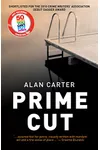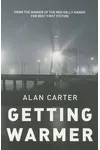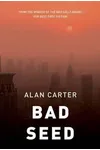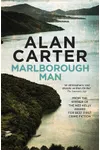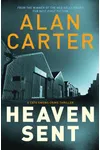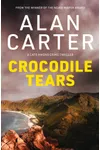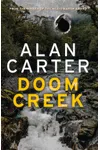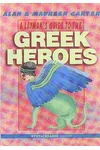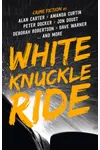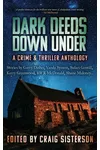Picture a Sunderland-born storyteller who swapped music video editing for gritty crime novels set in Western Australia’s sun-scorched landscapes—meet Alan Carter! This award-winning author has captivated readers with his Cato Kwong series, blending sharp wit, social commentary, and thrilling mysteries. From directing documentaries to crafting page-turners, Carter’s unique journey has made him a standout in Australian crime fiction.
Born in 1959, Carter’s life is a tapestry of creativity and adventure, weaving together his UK roots, Australian immersion, and a knack for storytelling that keeps readers hooked. Let’s dive into how this multifaceted creator became a literary gem.
The Making of Alan Carter
Alan Carter grew up in Sunderland, UK, where his early years were shaped by a love for stories and a degree in Communication Studies from Sunderland Polytechnic. In the 1980s and 1990s, he carved out a career as a music video editor, working with icons like Phil Collins. His television career kicked off with a David Copperfield special in 1993, and he later transitioned into documentary directing, a role that honed his eye for detail and human struggles. In 1991, Carter immigrated to Australia, settling in Fremantle, where the vibrant coastal town sparked his literary ambitions. By 2008, encouraged by his wife, he took a leap into writing, trading TV scripts for novels.
Alan Carter’s Unforgettable Stories
Carter’s debut novel, Prime Cut (2011), introduced Detective Senior Sergeant Cato Kwong, a Chinese-Australian cop navigating crime and prejudice in Fremantle. This taut thriller, shortlisted for the UK Crime Writers’ Association Debut Dagger and winner of the Ned Kelly Award for Best First Fiction, tackles racism, immigration, and exploitation amid a mining boom. Its sequel, Getting Warmer (2013), follows Kwong as he investigates a missing girl and a gruesome murder, blending humor with dark social themes. Bad Seed (2015) completes the initial trilogy, diving into corruption and personal loss, while later books like Heaven Sent (2018) and Crocodile Tears (2021) cement Kwong’s legacy with intricate plots and global issues like human rights abuses.
Carter’s style is a masterclass in balance: gritty yet witty, with richly drawn characters and settings that pulse with life. His documentaries inform his novels’ realism, while his humor keeps the darkness from overwhelming. Beyond the Cato Kwong series, Carter’s standalone Marlborough Man (2017) and Nick Chester novels, set in New Zealand, showcase his versatility, earning him the 2018 Ngaio Marsh Award.
Why Alan Carter Matters
Alan Carter’s impact lies in his ability to weave social issues into gripping narratives. His Cato Kwong series doesn’t just entertain—it challenges readers to confront racism, greed, and inequality. By centering a Chinese-Australian detective, Carter diversifies crime fiction, offering a fresh perspective in a genre often dominated by white protagonists. His work resonates globally, with translations in Germany, France, and Spain, and his documentaries continue to inform his nuanced storytelling. Carter’s legacy is one of courage, using fiction to mirror society’s flaws while keeping readers on the edge of their seats.
About Alan Carter
- Born: 1959, Sunderland, UK
- Key Works: Prime Cut, Getting Warmer, Bad Seed, Marlborough Man
- Awards: Ned Kelly Award (2011), Ngaio Marsh Award (2018)
- Fun Fact: He swims in Tasmania’s icy waters for fun!
Ready to dive into a world of crime, wit, and heart? Snag Prime Cut and join Cato Kwong’s thrilling adventures in Alan Carter’s masterful crime fiction!
